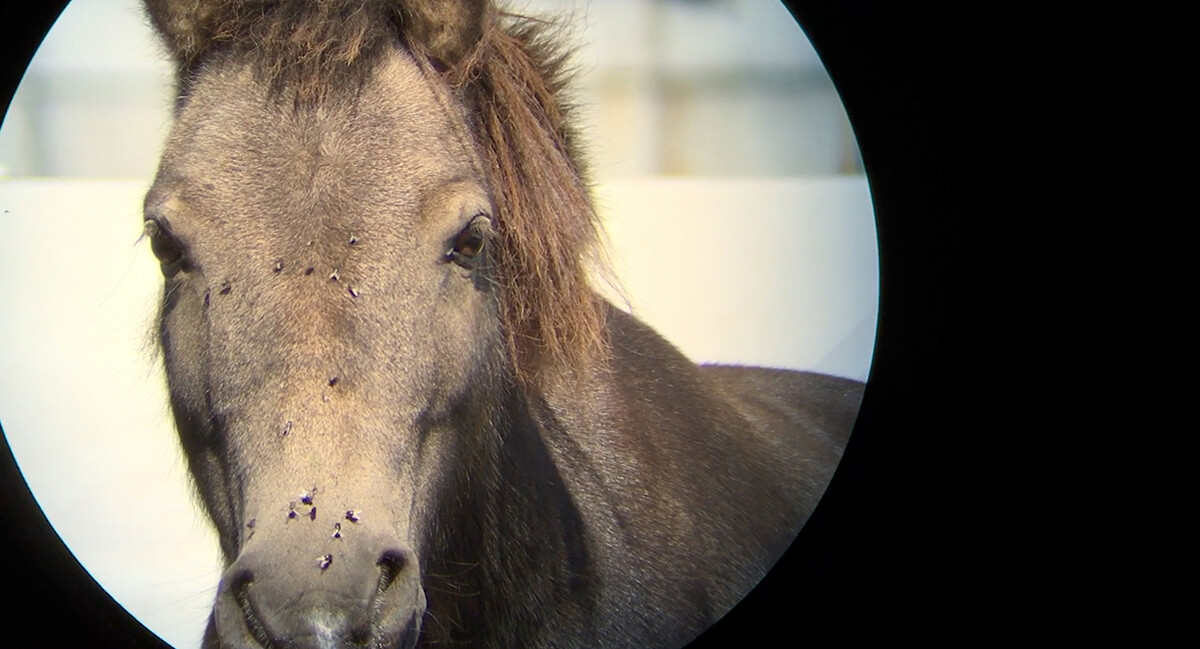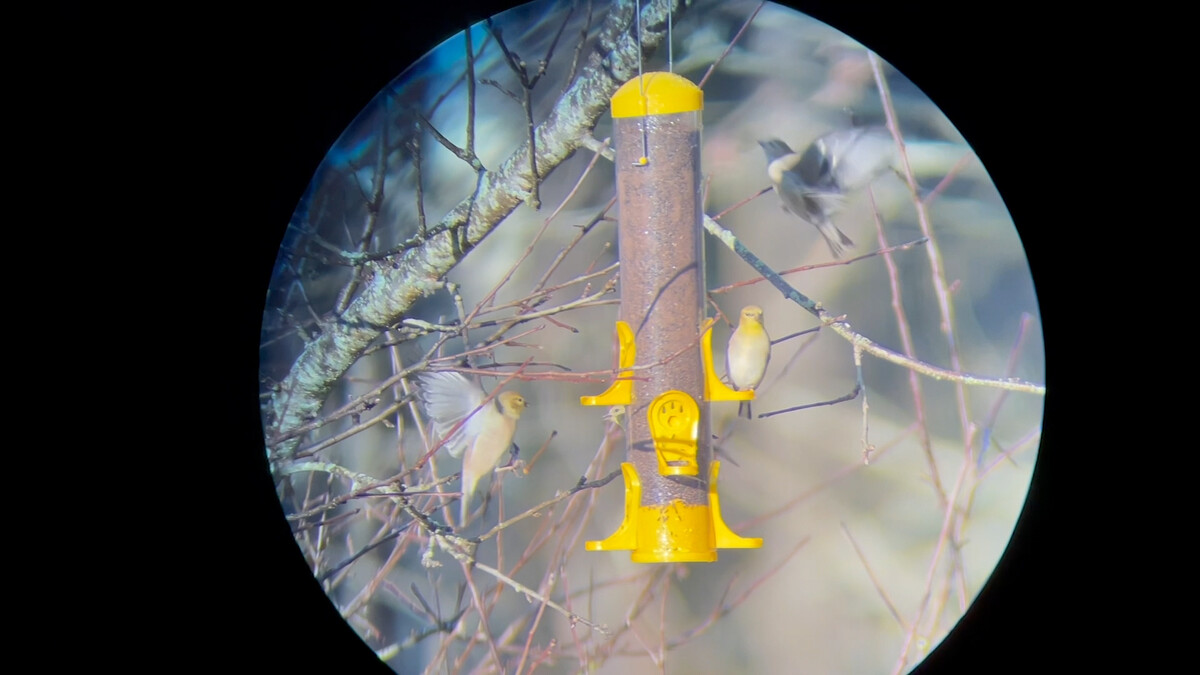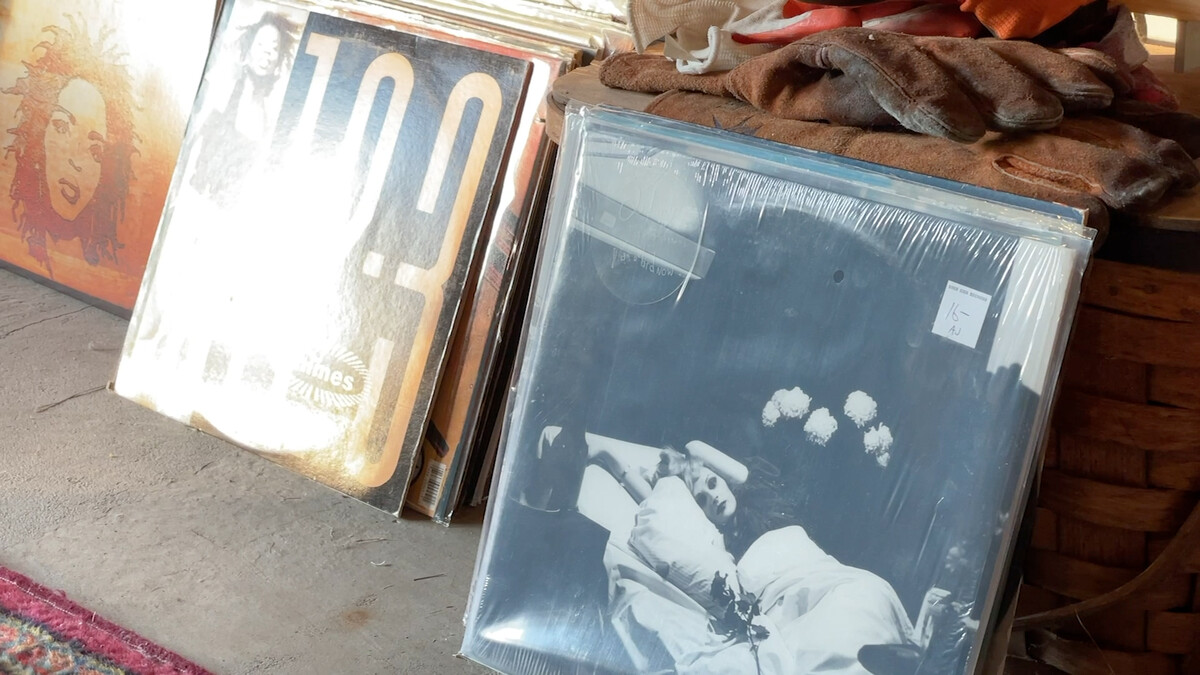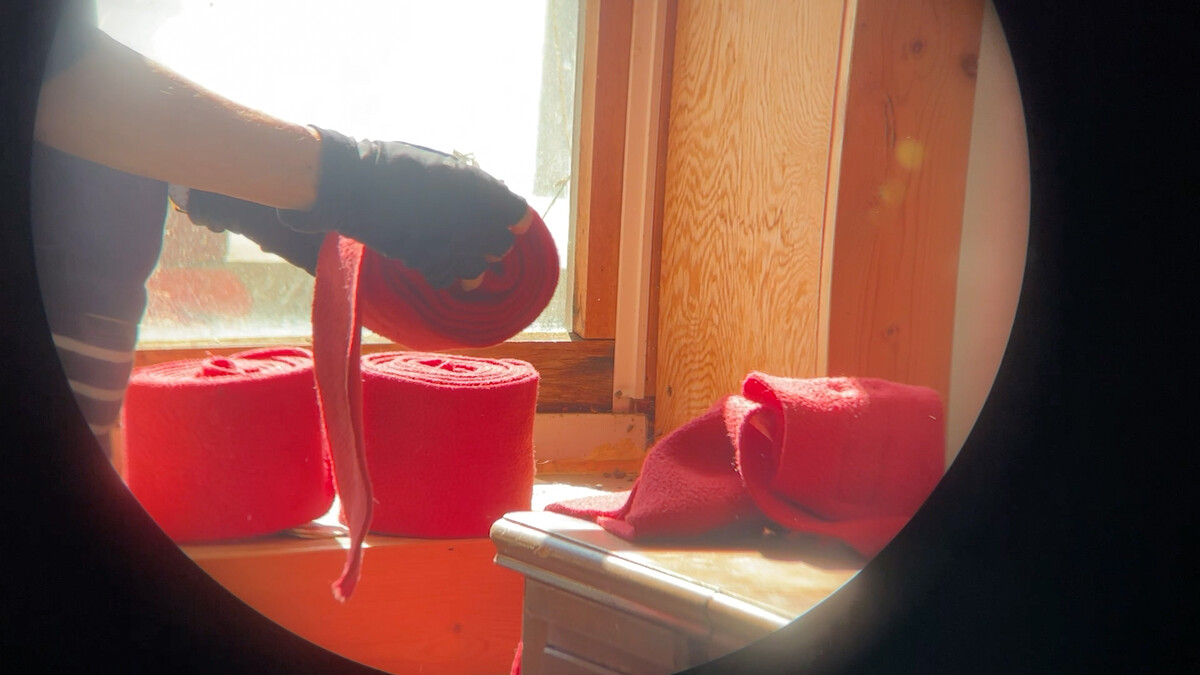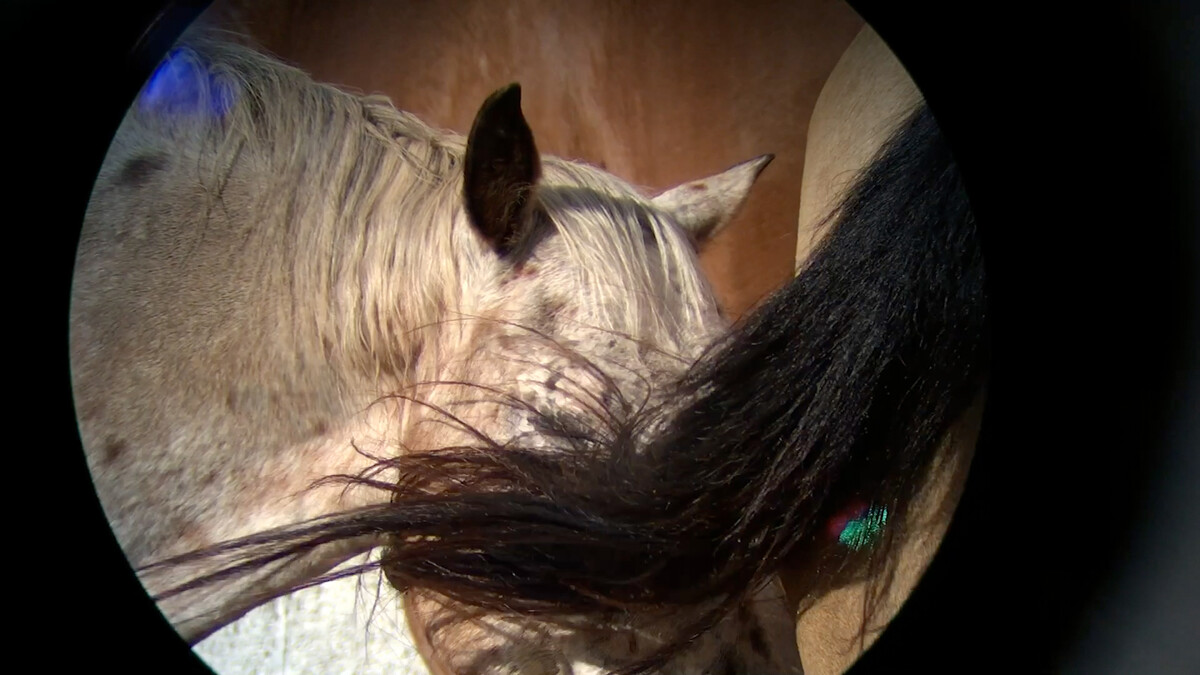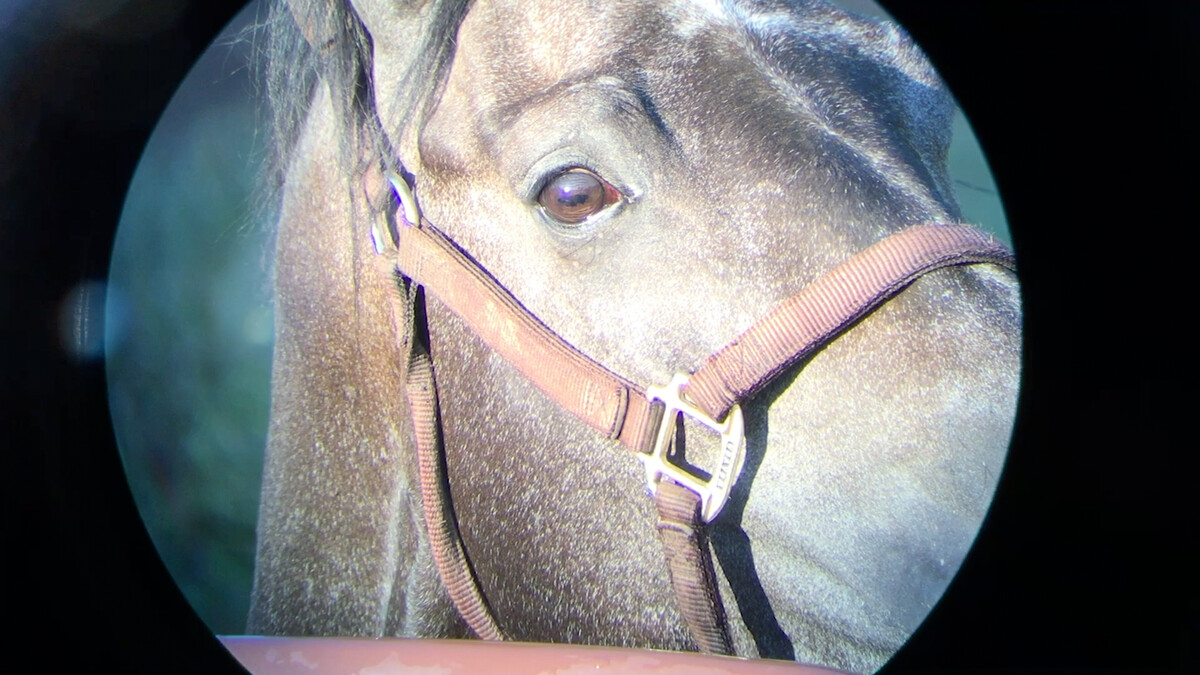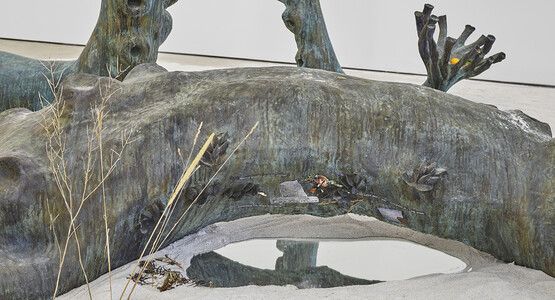Horse Opera
by Moyra Davey • November 2021 • Artist commission
This piece was commissioned in response to the Journal theme of Utopias; the text fragments and images are taken from Davey’s upcoming feature Horse Opera (2022).
The Silver Ball
The Loft parties, started by David Mancuso and friends in 1970, have a long history of upholding collective experience. Over and over acolytes testify to the almost mystical freedom of being united under the silver ball and the balloons, in a Utopic place that recalls childhood.
A perfectionist about the spaces he created, Mancuso was famous for the purity of his sound: the Klipschorn speakers, the high-end turntables mounted on cinder blocks, the super-expensive Japanese cartridges. He was insatiable in seeking out music, and chose recordings with care and eclecticism, all in the spirit of creating the best possible experience for people to come together on the dance floor.
At one point Mancuso divided his time between city and country, where he’d experienced the preternatural magic of sunrise, the heat of noon, and the softness again at sundown, and was inspired to sequence his music according to these diurnal rhythms. In the NYT Elle finds this description of the parties: ‘Evenings were structured in three ‘bardos’, a term that Timothy Leary had taken from The Tibetan Book of the Dead to describe the phases of an LSD trip: a peaceful embarkation leading to Dionysian frenzy, followed by a calm re-entry into the real world’. The last song on the playlist would be Nina Simone’s ‘Here Comes the Sun’.
Joy
All day Elle has been apprehensive about Joy. They drive to Long Island City in the rain and are nearly the first to arrive. An uninhibited woman named Lydia, the only person on the dance floor for a long time, does free-form movements, cartwheeling her arms to the slow, warm-up music.
Elle remembers Lydia from the last party because she made a point of introducing herself and her son, a tall dark-haired man with a tambourine. Later Elle reads about her in the annals of the party: Lydia had been a single mom from Argentina, and a Loft regular since the early days, often bringing her young children to the parties.
After a while a tall, slim girl named Ivana, with a curtain of black hair and round metal glasses slides gracefully onto the floor. She is wearing a knee-length black pencil skirt, a cropped tank top and low-heeled cowboy boots. She is a casually beautiful dancer and, along with Lydia will hardly leave the floor for the duration of the nearly six-hour party.
Joy parties are modelled on the same principles as The Loft, with five high speakers arranged around a dance floor, turntables on cinder block bases, and swirling lights overhead. The evenings also start out slow, with mood music few can dance to, and build to hard beats and the same diverse mix of genres championed by Mancuso. The space is smaller and more intimate. As with The Loft parties a friendly, welcoming vibe prevails, and a food buffet is served midway through the night, though Elle cannot imagine eating with everything else that is going on.
They do crystals with Jada and talk and dance and drink tequila and have a good time. Elle is happy when her head is ripped, but by the end of the night when the lights come on and they stand around chatting, she can’t bear it. Her heart is racing and she wants to get the hell out. They drive home in heavy rain. She is mostly silent, her head invaded by self-reproach, for having no restraint, and for the bad place she is in right now.
The Bardo
On another night Elle hears her son making noise in the early morning hours. All the lights are on and he’s stacking the fridge with cans of seltzer and then fumbling with a metal cabinet in the bathroom that he can’t figure out how to close. Elle gets up and confronts him about the noise and about being drunk, but he shrugs it off with the same, good-natured indifference he’s shown since high school. He has zero ‘bitter remorse’, and Elle cannot help but feel a softness towards him, in and after these moments of confrontation. She has never seen him with a hangover, nor has he ever acknowledged these nocturnal episodes except to apologise for the noise. Guilt did not figure prominently in his upbringing.
He has leopard spots all over his torso, a kind of warm-weather fungus, probably inherited from Elle who also had it as a young person. She rubs a medicated cream over his back, his neck, shoulders and chest. He is tall, his pumped-up flesh is springy and firm, but still oddly child-like, and for the first time she notices stretch marks near his armpits. She has not touched his body like this in a very long time.
The COVID pause reminds Elle of a play by Sartre called The Die is Cast, wherein a young couple dies and is given a twenty-four-hour reprieve to return to earth and redeem themselves as lovers. Her friend Lyra, in Vancouver, texts two words: The Bardo. She’d heard the word, but never knew its meaning, she looks it up: in Buddhism, it is the period of waiting between death and rebirth, forty-nine days.
Serotonin
Elle discovered the purgative effect of powder the hard way: she’d done a small line at her poetry reading downtown. Happy and buoyant, walking to a nearby club with a group of friends she felt an unmistakable churning in her gut. She was wearing a long, wool coat over black lace stockings and a tight, satiny t-shirt dress. By the time they arrived at the club it was too late and she spent the next half hour in the bathroom rinsing the tights and cleaning herself.
Elisabeth Hardwick advises against writing about ailments and insomnia: Boring and repetitive.
Hilton Als talks about ‘letting the mess come in’, adding:
‘[...] Conventional narratives feel inauthentic because they want control’.
In search of a synonym for Serotonin, Elle learns that Serotonin is found in the brain, the blood vessels, and the bowels.
Anne Spencer
A large envelope postmarked July 10th with an Anne Spencer stamp arrives from The Loft. Elle looks up Spencer and reads a long, beautiful biography of the poet, teacher, gardener and civil rights activist who is considered part of the Harlem Renaissance, even though she lived in Virginia. She was born in 1882, the same year as Virginia Woolf, but far outlived her British contemporary, dying at age ninety-three.
The envelope contains a card with a note of empathy for all those impacted by COVID-19, signed ‘Love Saves The Day’, and another, longer note of solidarity, written after the murder of George Floyd. There is also a brief history outlining the origins of The Loft in the late 1960s, describing it as an oasis of inclusivity ‘a microcosm of social progress [...] often at odds with the world at large’. The note ends with a fervent wish to be together, ‘to dance again under the silver ball’.




